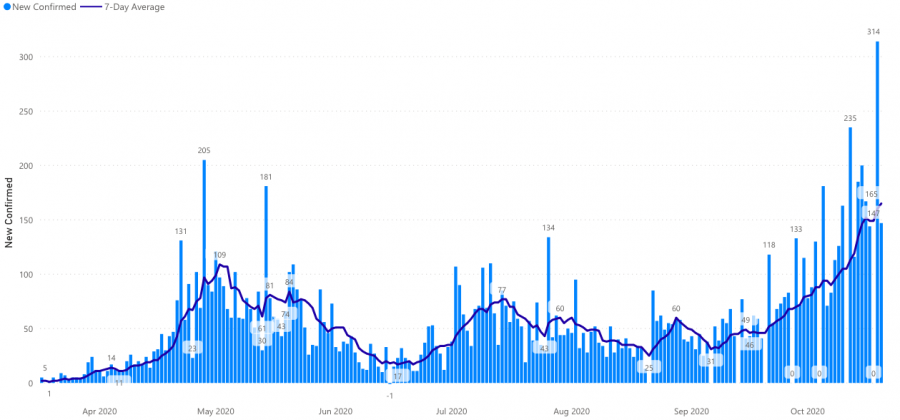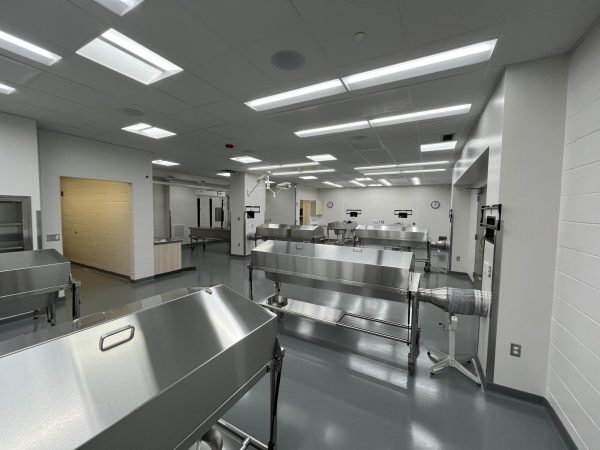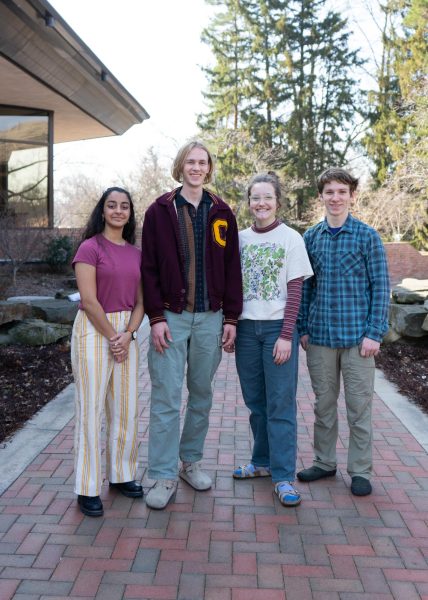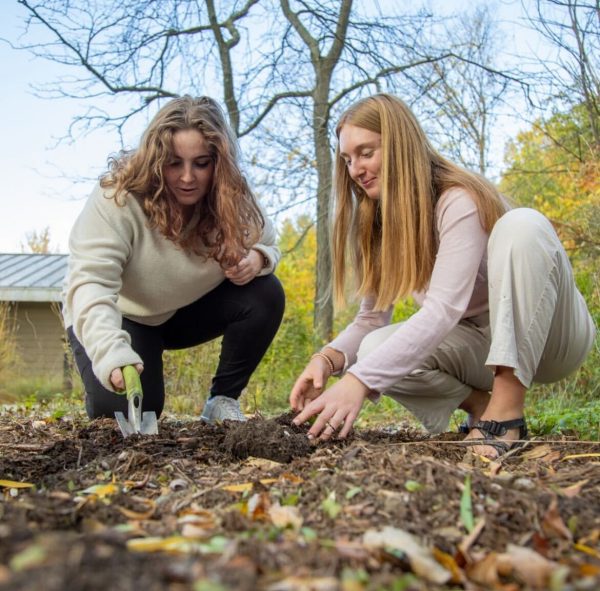Amidst rising infection rates, Safe Return Team introduces COVID-19 surveillance testing
Graphic courtesy of Kent County Health Department
COVID-19 cases have been rising in Kent County.
More students can now expect to participate in proactive surveillance testing, in addition to monitoring their symptoms through the Campus Clear app.
According to the CDC website, surveillance testing, as opposed to diagnostic testing or screening, is about obtaining “information on the population level, rather than the individual level.” It involves testing a randomly selected sample of the population—on Calvin’s campus, a randomly selected group of students—on a rolling basis and using the information obtained from the sample to make further policy decisions for the community as a whole.
Surveillance testing was previously limited to student athletes, but given rising rates in Kent county and other factors, residential students and those with internships or other practicums in the community are now being included. An October 9 email from the COVID-19 Response Team stated that they will “randomly-select up to 15% of these two student groups for screening tests each week.” Including athletes, this amounts to roughly 600 students.
According to Vice President of Student Life Sarah Visser, the names of students are put into a spreadsheet according to their group—residential or community-engaged—and randomly selected. Visser also said the cost of the expansion is covered by funds the university has already anticipated using for “COVID-19 expenses.”
Dr. Kristen Alford, social work professor and member of the COVID Response Team, said residential students were chosen because they live in high-density “congregate living facilities.” According to Alford, surveillance testing is one of the “additional steps [Calvin is] using to monitor the situation” and prevent outbreaks on campus.
Calvin is also focusing on students with internships and other practicums that bring them into contact with the broader community off campus. Alford said that this protects students as well as those they come into contact with. “We don’t want to be contributing to community spread,” she said.
She emphasized that many students work with vulnerable populations in schools, hospitals, and social service agencies. The COVID Response Team sees monitoring the spread of COVID-19 within the campus community as part of Calvin’s “due diligence” to protect the surrounding Grand Rapids area.
“I hope people can see it as missional,” Alford said, noting that surveillance testing has been somewhat controversial. In the spring, the CDC did not recommend it for colleges and universities due to the limited amount of available tests. She also touched on how it can create a false sense of security; someone may get a negative test result and feel free to be less cautious about social distancing. However, Calvin has seen success with athletes so far; additional surveillance screening tests does not take away resources from clinical testing.
According to freshman French and psychology major Annalise Holcomb, being surveillance tested was “pretty painless and quick.” Holcomb was contacted through email and was offered different dates and time slots to sign up for. The test was done by Helix Diagnostics outside on the track with a nasal swab. It took between ten and fifteen minutes, and she received the test results two days later.
Based on her experiences, Holcomb encourages other students to “be open” to it.
“While it might be annoying to keep doing these protocols,” she said, “It is for our benefit so that we can be here.”
The policy will be in place indefinitely. According to Alford, Calvin will use surveillance testing “until we don’t need it or it doesn’t work.”







